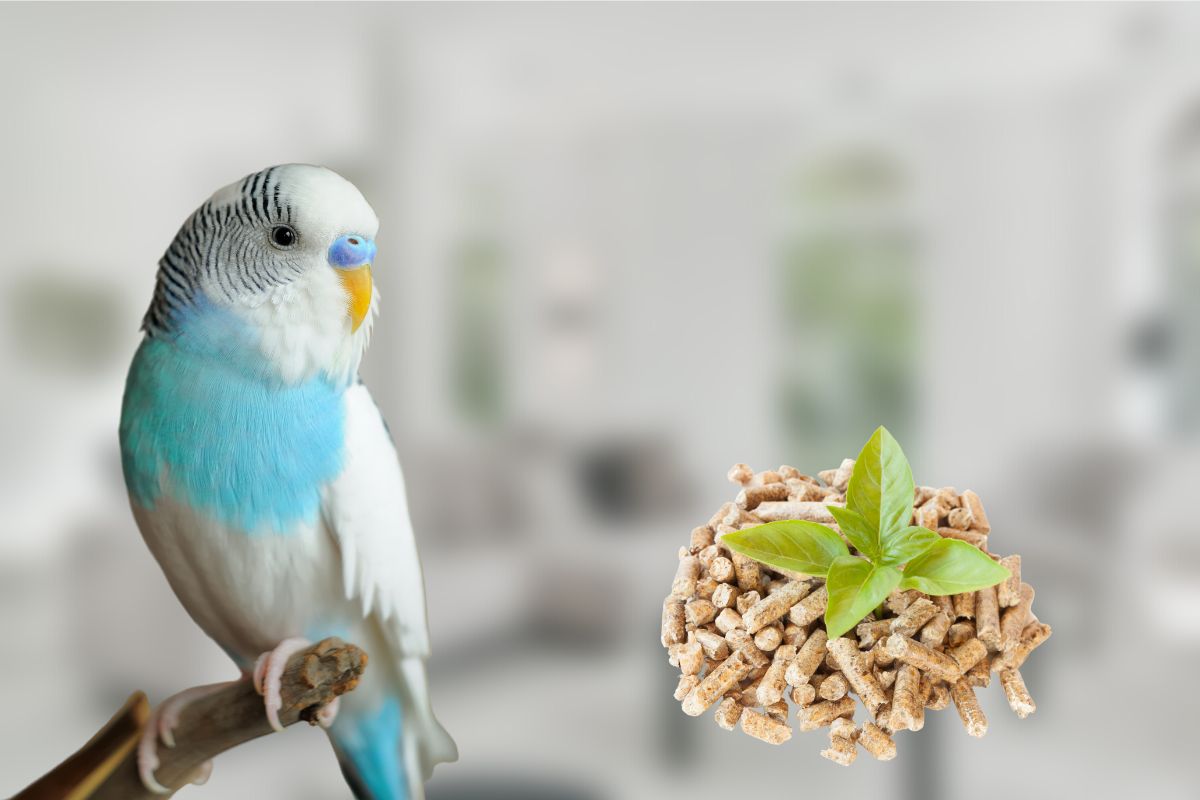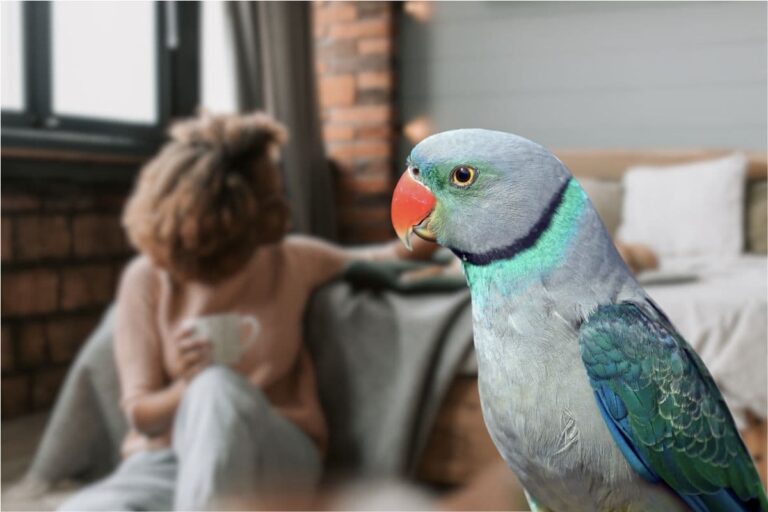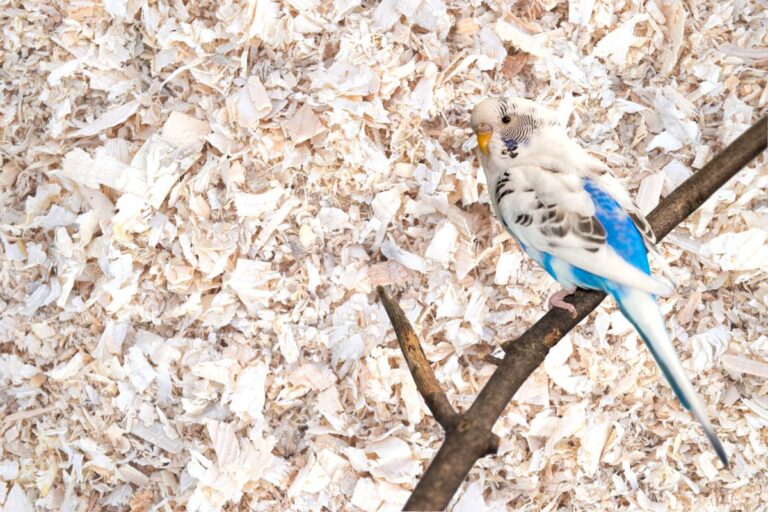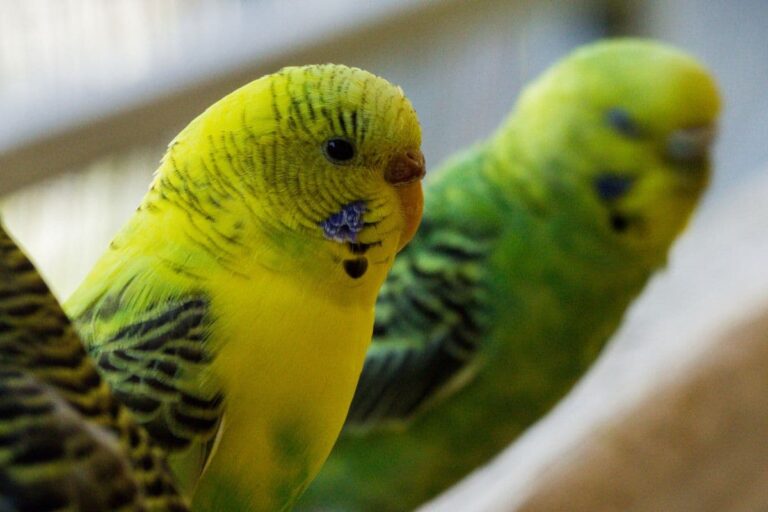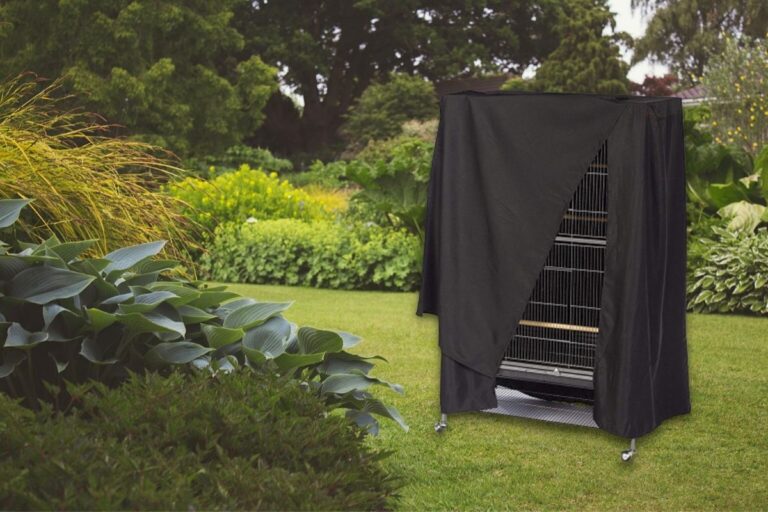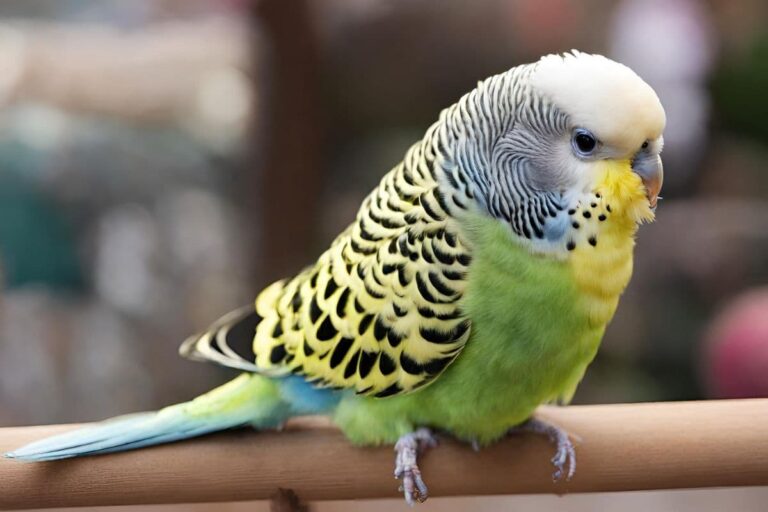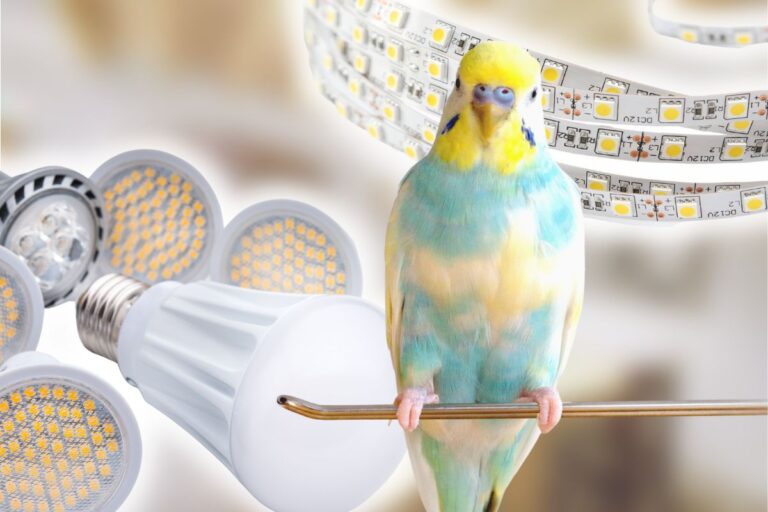Will a Parakeet Starve Itself?
Disclosure: The opinions expressed in this post are my own. This post may also contain affiliate links, which means that I will receive a commission if you decide to purchase through my links, at no additional cost to you. As an Amazon Associate, I earn from qualifying purchases.
Have you ever heard the phrase “stubborn as a mule”? Well, what about “stubborn as a parakeet”? Many bird owners have experienced the frustration of their parakeet refusing to eat, even when food is readily available. But can a parakeet actually starve itself to death?
In this article, we will explore the reasons why a parakeet may refuse to eat and the potential consequences of prolonged starvation. We will also provide tips for encouraging your parakeet to eat and when to seek veterinary care.
Will Parakeets Starve Themselves?
Parakeets are known to be finicky eaters, and it’s not uncommon for new owners to wonder if their bird will starve itself. The short answer is yes, a parakeet can potentially starve itself, despite being surrounded by plenty of food. However, this is usually a result of an environment or food change, an underlying health issue or stress rather than a deliberate attempt by the bird to harm itself.
If you notice that your parakeet has stopped eating or is eating significantly less than usual, it’s important to address any issues with their eating habits as soon as possible to ensure that they remain healthy and happy.
How Long Can a Parakeet Survive Without Eating?
It’s important to note that parakeets have a high metabolism, which means they need to eat frequently. In fact, they should be fed every day to ensure they stay healthy. If a parakeet goes without eating for more than 24 hours, it can lead to serious health problems, such as organ failure and even death.
However, the exact amount of time a parakeet can survive without eating depends on various factors, such as age, health, and environmental conditions. It’s generally recommended that owners should never let their parakeets go without food for more than 24 hours. If you notice that your parakeet is not eating, it’s important to take them to a veterinarian as soon as possible.
Reasons Why a Parakeet is Reluctant to Eat
There are several reasons why a parakeet may be reluctant to eat. By finding out the cause of the problem, it will be easier to get your parakeet back on track with eating. Here are the most common reasons why parakeets refuse to eat despite given food.
1. Unfamiliar Diet
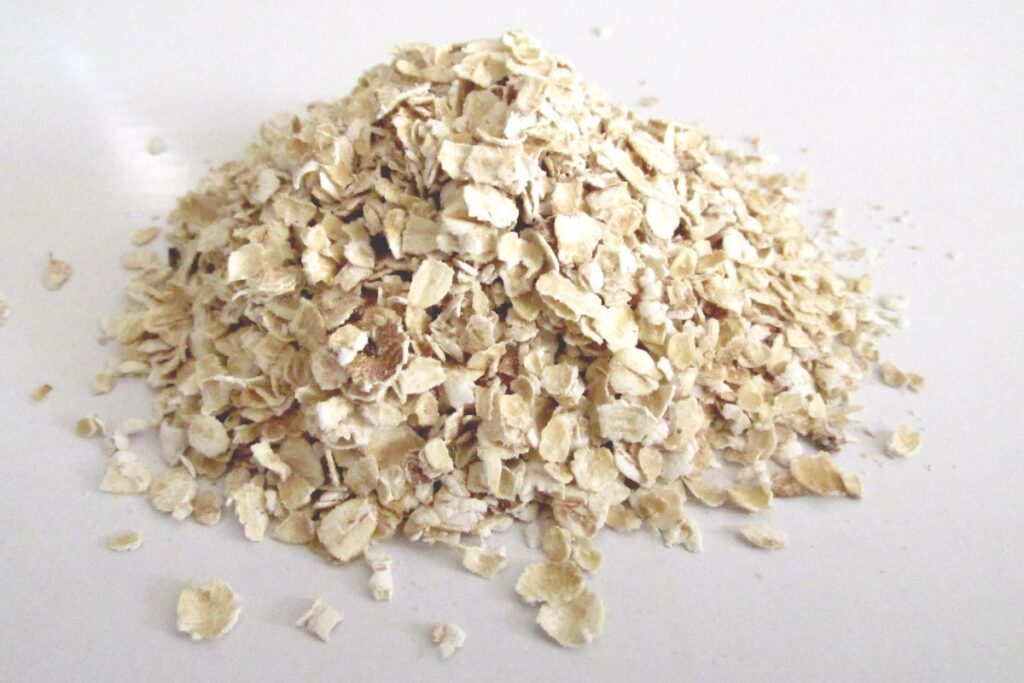
In several cases, parakeets have been known to completely avoid eating when their diet has been changed drastically, such as from seeds to pellets.
Parakeets can be picky eaters and may refuse to eat if their food has been switched suddenly or if they are not used to the new type of food. It’s important to introduce any new foods gradually and make sure your parakeet has access to its usual food as well.
2. Stress
Stress can be a major factor in a parakeet’s refusal to eat. Changes in their environment, such as a new cage or the presence of a new pet or family member, can cause stress and lead to a loss of appetite. Additionally, loud noises or other disruptions can cause stress and make the bird feel unsafe, leading to a lack of interest in food.
It’s important to monitor your parakeet’s behavior and environment to identify any potential sources of stress. Providing a calm and comfortable environment, along with familiar toys and perches, can help reduce stress and encourage healthy eating habits.
3. Change of Environment
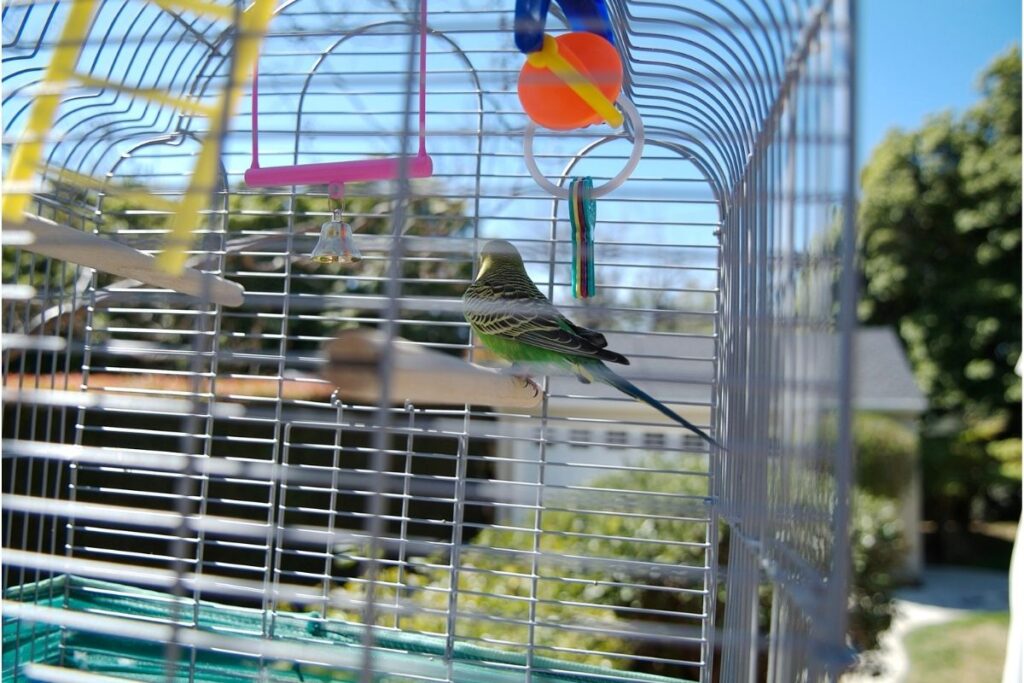
If you’ve just brought your parakeet home, it may not eat much for the first day or two. This is normal as your bird adjusts to its new environment. Once your bird feels comfortable, it will start to explore its new home and look for food.
Whenever a parakeet is introduced to a new setting, it may take some time for them to adjust and feel comfortable. During this adjustment period, it is possible for the parakeet to refuse food and water, leading to concerns about starvation. However, with patience and proper care, most parakeets will eventually start eating and drinking again.
To help a parakeet adjust to a new environment, it is important to provide them with a familiar diet and a comfortable living space. This can include placing familiar toys and perches in their cage, as well as offering the same type of food and water they are used to.
4. Injury
If a parakeet is injured, it may refuse to eat or drink due to the pain and shock of the injury. This can quickly lead to starvation and dehydration, which can be fatal for the bird.
It’s important to monitor your parakeet closely if you suspect they are injured and seek veterinary care immediately. In the meantime, you may need to offer them soft, easy-to-eat foods and encourage them to drink water or electrolyte solutions.
In some cases, the injury may be affecting the bird’s ability to eat or drink normally. Your vet may recommend syringe feeding or other methods to ensure your parakeet is getting the nutrition and hydration they need to recover.
5. Stubbornness
Birds are unique creatures, and their behavior can sometimes be difficult for us to interpret.
One common behavior that parakeets exhibit is stubbornness, which can lead to them refusing to eat or drink. This can be a cause for concern, as not getting enough nutrients can lead to health problems.
If your parakeet is being stubborn and not eating, it’s important to try different foods and methods to encourage them to eat. This can include offering fresh fruits and vegetables, changing up their feeding routine, or even hand-feeding them.
It’s important to monitor your parakeet’s behavior and weight to ensure they are getting the proper nutrition. If you are concerned about their stubbornness and refusal to eat, consult with a veterinarian who specializes in avian health.
6. Loneliness
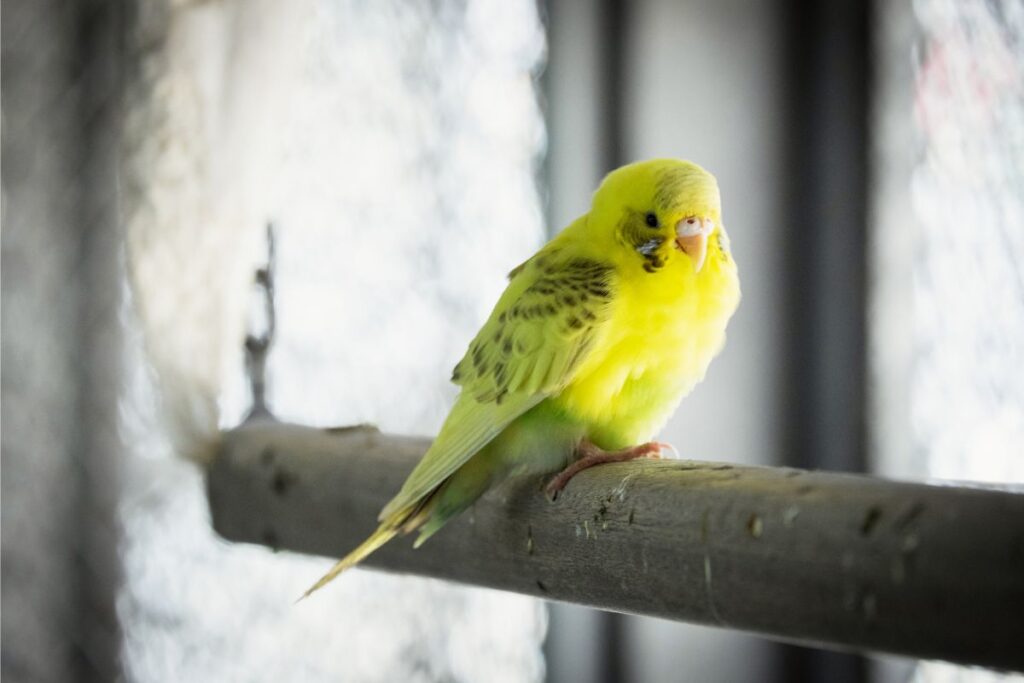
In the wild, birds are social creatures that flock together for protection and companionship. When they’re cooped up alone in a cage, they can get lonely. A lonely bird may stop eating and start feather-plucking out of boredom or stress.
If you think your bird is lonely, try adding another bird to the family. If that’s not possible, try these tips to make your feathered friend feel more connected:
- Interact with your bird daily. Talk, sing or play games together
- Give your bird toys and puzzles to keep its mind active
- Move your bird’s cage to a busy area of the house so it can watch the comings and goings of the household
7. Depression
Depression is a serious condition that can affect parakeets and cause them to lose interest in eating. Signs of depression in parakeets include lethargy, lack of appetite, and decreased activity levels.
It’s important to note that parakeets are social animals and require regular interaction with their owners or other birds. Lack of socialization can lead to depression and other health issues.
If you suspect that your parakeet is suffering from depression, it’s important to take action as soon as possible. Providing plenty of toys, social interaction, and a healthy diet can help alleviate symptoms.
8. Illness
When a parakeet is sick, it may stop eating or drinking, leading to potential starvation. Common illnesses in parakeets include respiratory infections, digestive issues, and parasites. It’s important to take your parakeet to a veterinarian if you notice any signs of illness, such as lethargy, loss of appetite, or unusual behavior.
In some cases, medication or a change in diet may be necessary to help your parakeet recover. It’s also important to provide your parakeet with a clean and comfortable environment to aid in their healing process.
What Should You Do If Your Parakeet is Not Eating?
If you notice that your parakeet isn’t eating, it’s important to take action quickly. A budgie that doesn’t eat can starve to death really quickly. If you are not sure what the problem is, take your parakeet to the vet. In the meantime, here some are things you can do to encourage your parakeet to eat.
Make Sure Their Cage & Environment is Clean & Comfortable
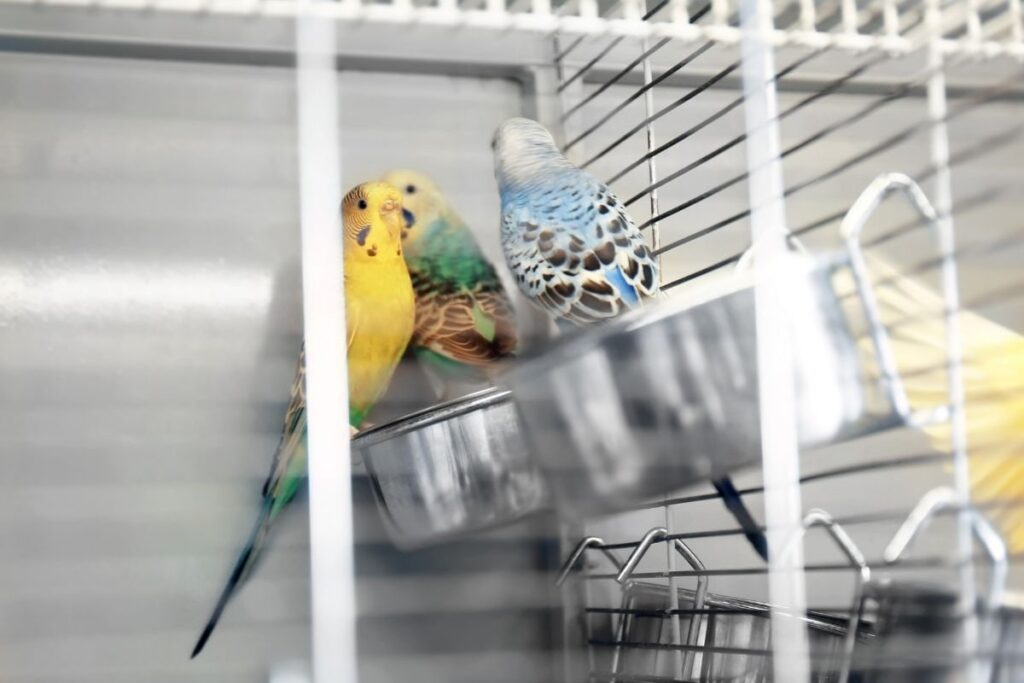
It’s important to keep your parakeet’s cage and environment clean and comfortable. Not only does it promote good health and hygiene, but it also helps prevent stress and anxiety, which can lead to a lack of appetite and even starvation. Here are some important things to note to provide the with a comfortable environment:
- Ensure their cage is large enough for them to spread their wings and move around freely
- Make sure the cage has plenty of perches and toys for your parakeets to play with
- Keep the cage clean by regularly changing the bedding, wiping down surfaces and washing food dishes and water bowls
- Keep the temperature and humidity levels in a healthy and comfortable range
- Always ensure there is enough fresh water
Spend Time Socializing With Your Parakeet
Parakeets are social creatures and require regular interaction with their owners to maintain a healthy and happy life. Spending time socializing with your parakeet is not only important for their well-being, but it can also help prevent them from starving themselves.
When a parakeet feels neglected or lonely, they may stop eating and become lethargic. This can lead to serious health issues and even death if not addressed promptly. By spending time with your parakeet, you can provide the social stimulation they need to stay happy and healthy.
There are many ways to socialize with your parakeet, such as talking to them, playing games, or simply sitting near their cage and letting them observe you. You can also introduce a companion to keep them engaged and entertained.
It’s important to remember that socialization is an ongoing process and requires consistent effort on your part. By investing time and energy into building a strong bond with your parakeet, you can help prevent them from starving themselves and ensure they live a long and happy life.
Try Hand-feeding Your Parakeet to Create a Bond and Show that Food is Safe
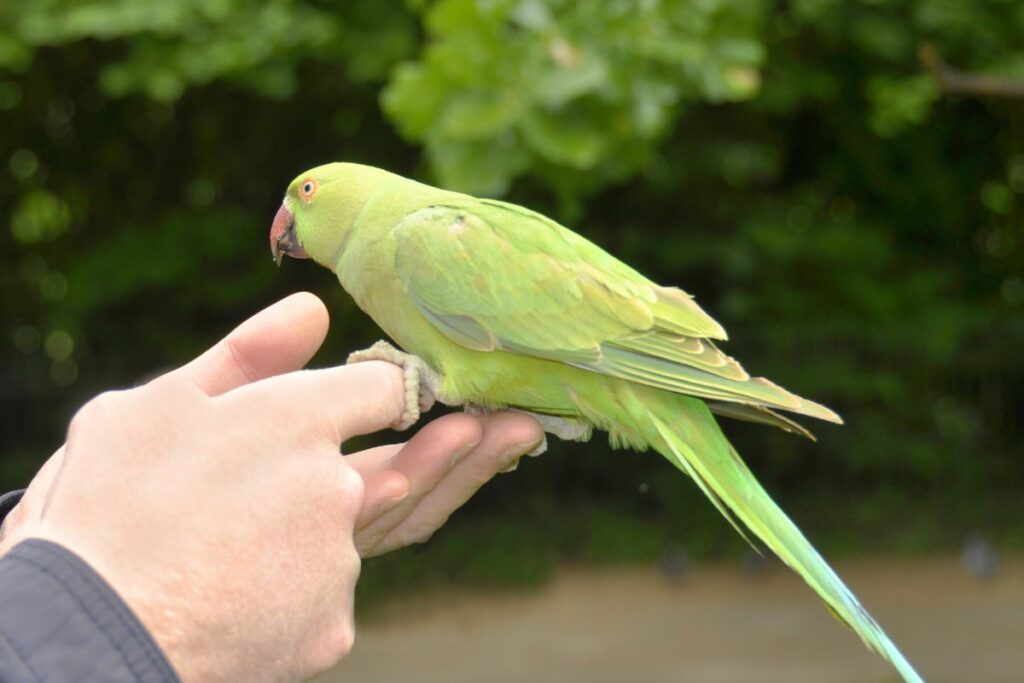
If you’re worried that your parakeet may not be eating enough, hand-feeding can be a great way to create a bond with your bird and ensure that it’s getting the nutrition it needs. By offering your parakeet food directly from your hand, you’re showing it that you’re a source of safety and security, and that the food you’re offering is safe to eat.
When you are just getting started with hand-feeding your parakeet, it’s important to be patient and gentle, and to allow your bird to approach the food on its own terms. Over time, your parakeet will learn to trust you and associate your presence with positive experiences.
Hand-feeding can also be a great way to monitor your parakeet’s eating habits and ensure that it’s getting the right balance of nutrients. If you notice that your bird is consistently avoiding certain foods or losing weight, it may be time to consult with a veterinarian or avian specialist to rule out any underlying health issues.
Incorporate Familiar Foods into Their Diets
One way to incorporate familiar foods is by gradually introducing new foods alongside their favorite foods. For example, if your parakeet loves seeds, try adding a small amount of fruits or vegetables to their seed mix. Over time, increase the amount of fruits and vegetables while decreasing the amount of seeds to encourage a more balanced diet.
Parakeets may refuse to eat certain foods, especially if their diet has underwent significant changes. However, incorporating familiar foods into their diets can help ensure they receive the proper nutrition they need to avoid starvation.
Offer a Variety of Foods and Change Up Their Diet Often
Parakeets can easily get bored with their food. If they don’t have access to a variety of fresh foods, they may refuse to eat altogether. To prevent this from happening, make sure to offer your parakeet a variety of fresh fruits and vegetables, such as kale, spinach, carrots, apples, and berries. You can also offer them cooked grains, such as rice and quinoa, and sprouted seeds for added nutrition.
It’s important to change up their diet often to keep them interested in their food. You can rotate different fruits and vegetables every few days or offer them a different type of seed mix every week. This will not only keep your parakeet healthy but also happy and entertained.
Final Words
It’s important to understand that a parakeet does not intentionally starve itself to death. However, there are various reasons why a parakeet may stop eating, such as illness, stress, or changes in diet or environment. It’s crucial to monitor your parakeet’s behavior and seek veterinary care if you suspect any health issues.
Additionally, providing a balanced and nutritious diet, along with a stimulating environment, can help prevent any potential issues with your parakeet’s eating habits. Remember to always consult with a veterinarian or avian expert if you have any concerns about your parakeet’s health or behavior. With proper care and attention, your parakeet can live a happy and healthy life.



